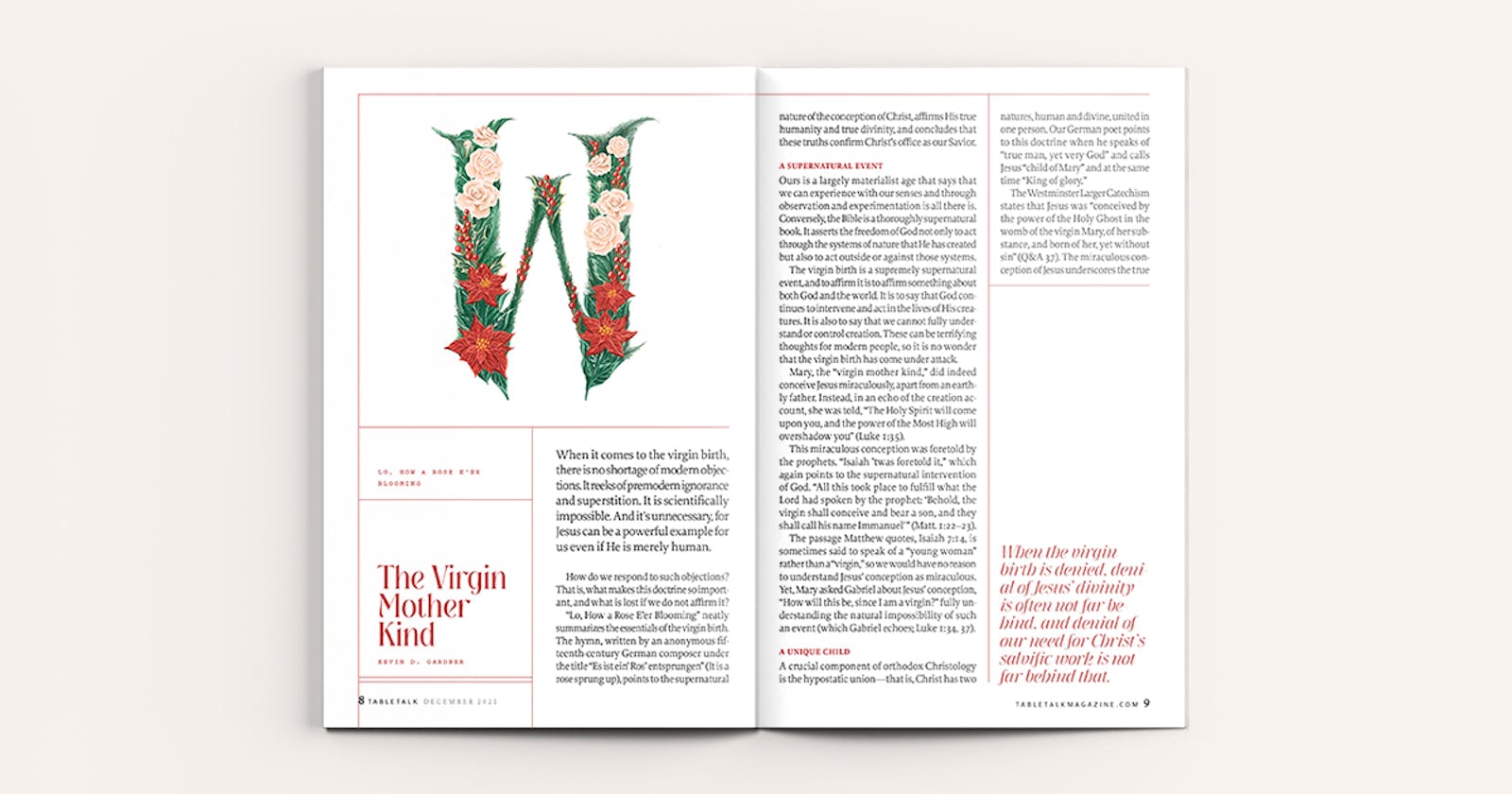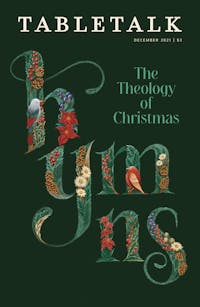
Request your free, three-month trial to Tabletalk magazine. You’ll receive the print issue monthly and gain immediate digital access to decades of archives. This trial is risk-free. No credit card required.
Try Tabletalk NowAlready receive Tabletalk magazine every month?
Verify your email address to gain unlimited access.
When it comes to the virgin birth, there is no shortage of modern objections. It reeks of premodern ignorance and superstition. It is scientifically impossible. And it’s unnecessary, for Jesus can be a powerful example for us even if He is merely human.
How do we respond to such objections? That is, what makes this doctrine so important, and what is lost if we do not affirm it?
“Lo, How a Rose E’er Blooming” neatly summarizes the essentials of the virgin birth. The hymn, written by an anonymous fifteenth-century German composer under the title “Es ist ein’ Ros’ entsprungen” (It is a rose sprung up), points to the supernatural nature of the conception of Christ, affirms His true humanity and true divinity, and concludes that these truths confirm Christ’s office as our Savior.
a supernatural event
Ours is a largely materialist age that says that what we can experience with our senses and through observation and experimentation is all there is. Conversely, the Bible is a thoroughly supernatural book. It asserts the freedom of God not only to act through the systems of nature that He has created but also to act outside or against those systems.
The virgin birth is a supremely supernatural event, and to affirm it is to affirm something about both God and the world. It is to say that God continues to intervene and act in the lives of His creatures. It is also to say that we cannot fully understand or control creation. These can be terrifying thoughts for modern people, so it is no wonder that the virgin birth has come under attack.
Mary, the “virgin mother kind,” did indeed conceive Jesus miraculously, apart from an earthly father. Instead, in an echo of the creation account, she was told, “The Holy Spirit will come upon you, and the power of the Most High will overshadow you” (Luke 1:35).
This miraculous conception was foretold by the prophets. “Isaiah ’twas foretold it,” which again points to the supernatural intervention of God. “All this took place to fulfill what the Lord had spoken by the prophet: ‘Behold, the virgin shall conceive and bear a son, and they shall call his name Immanuel’ ” (Matt. 1:22–23).
The passage Matthew quotes, Isaiah 7:14, is sometimes said to speak of a “young woman” rather than a “virgin,” so we would have no reason to understand Jesus’ conception as miraculous. Yet, Mary asked Gabriel about Jesus’ conception, “How will this be, since I am a virgin?” fully understanding the natural impossibility of such an event (which Gabriel echoes; Luke 1:34, 37).
a unique child
A crucial component of orthodox Christology is the hypostatic union—that is, Christ has two natures, human and divine, united in one person. Our German poet points to this doctrine when he speaks of “true man, yet very God” and calls Jesus “child of Mary” and at the same time “King of glory.”

The Westminster Larger Catechism states that Jesus was “conceived by the power of the Holy Ghost in the womb of the virgin Mary, of her substance, and born of her, yet without sin” (Q&A 37). The miraculous conception of Jesus underscores the true humanity of Christ, in that He was truly born of woman and is indeed human; He is “of her substance.” And it also underscores the true divinity of Christ, in that His conception was “by the power of the Holy Ghost.”
He was also “born . . . without sin.” Mere natural-born humans all inherit the stain of original sin from their parents, yet Jesus was fully sanctified from birth so that He could accomplish His mission of redemption.
a worthy savior
In His miraculous conception and birth, Jesus was shown to be a worthy Savior. Our nameless poet confesses Him as “Christ, the Lord of glory” and states, “From sin and death he saves us and lightens ev’ry load.” The Bible tells us that the angels announced, “Unto you is born this day in the city of David a Savior, who is Christ the Lord” (Luke 2:11), and that Mary was to call Him Jesus, “for he will save his people from their sins” (Matt. 1:21).
For these reasons, the historic church has always included the virgin birth in its creeds and confessions. When the virgin birth is denied, denial of Jesus’ divinity is often not far behind, and denial of our need for Christ’s salvific work is not far behind that.
Praise be to God that we do have a sufficient Savior, true God and true man, One “who dost our weakness know.” May we, with our German poet, trust that He will “bring us at length, we pray, to the bright courts of heaven and to the endless day.”
